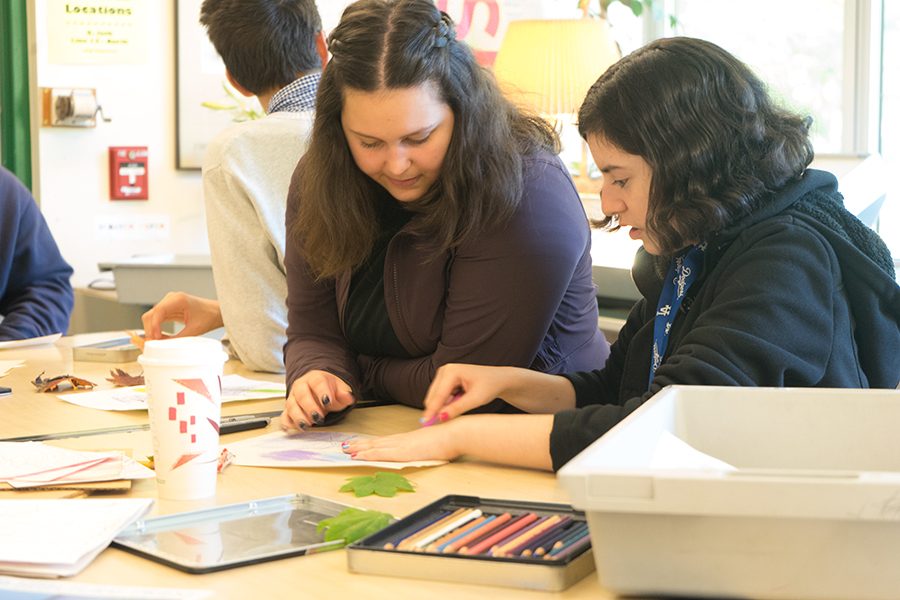Students develop physical, interpersonal skills
A small group of students sits clustered around a table. A shout of “Bingo!” rings out through the open door. Here, in room A104, students from the Functional Skills and Academics classroom work together in pairs with general education students, known as peer coaches, who volunteer their time.
“With each student, there’s a greater connection that happens when they’re here,” special education teacher Melissa Lima said. “It can make learning and working much more enjoyable when working with a peer.”
Lima has worked in the program for ten years. The peer coaching program has been around for as long as she remembers. Over her time here, she has seen countless pairs of students form tight bonds, she said.
Across the campus, in room 403, peer coach and senior Marie Severson helps students learn skills relevant to art. For her, the individual connection with each student is what allows her to provide the most help. She works with four students, including senior Mason Petry.
“I’m doing my paper drawing and coloring the leaf— [you have to] stay soft, not too hard,” Petry said.
In front of him are a series of sketches, the quality and level of detail increasing incrementally in each one.
“Helping [special ed students] to be able to do simple tasks, just like doing this leaf drawing — it’s a big step for them,” Severson said.
Big improvements like this come not only in physical skills, but also interpersonal skills, she said.
“I think that the peer coaches that have been here have learned a lot and been able to interact more meaningfully,” Lima said. “[Students] get to know other people through the peer coaches that they might not have gotten to know otherwise.”
Interaction between coaches and students isn’t confined to only class time, either. As a part of the program, every peer coach makes a plan to meet with a student they work with outside of the class. For some, this can transform from a one-time occurrence to a regular routine.
“We had a student last year— it was his senior year and he’d been a peer coach for I’m not sure how many years. He would come and have lunch with one of our students every day,” Lima said. “It was a big deal.”
Sometimes, even after coaches leave the program, they still remain involved, Lima said.
“Even though I’m not in peer coaching this year because of all the classes I have to take, I still interact with all the kids in the class,” senior Kellen London, a former peer coach, said.
London himself had surgery after a brain aneurysm which affected his short-term memory, peripheral vision and reading abilities, he said, which helped him empathize with the students he worked with.
“Even though I’m not in peer coaching this year because of all the classes I have to take, I still interact with all the kids in the class,” London said. “I always say ‘hi’ to all the kids when I see them and I feel so special.”
